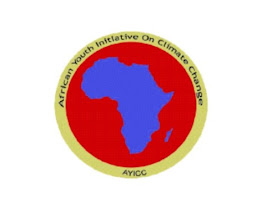Climate Change Bill, 2012 … where dots did not connect
Background
Kenya has realized a number of
milestones in matters of climate change. In 1994, the nation ratified the
United Nation Framework Convention on Climate Change – an international environmental treaty that was produced during the Rio EarthSummit (formally known as United Nation Conference on Environment and Development) in
June 1992 - as well as Kyoto Protocol in 2005.
Kenya has also been well represented by government officials, non-governmental
organizational and other actors during the COP processes since 1995. The nation
has also developed key policy and institutional frameworks, such as National
Climate Change Response Strategy (2009) and National Climate Change Action Plan
(2013-2017). Kenya is also the second country that has established a climate
change secretariat in Africa. The Climate Change Bill (2012) could have been ranked among these landmarks, had it been assented to and
passed as an act of parliament. But it didn’t. So, what went wrong??
The journey to the bill
The climate change phenomenon has
been around for centuries. However, it took a different turn in the 1980’s when
its impacts became more evident through increased desertification, crop
failure, droughts, flash floods et cetera. Around the same time, the climate
change discourse also took a political turn when different states came together
to raise a united voice on tackling and mitigating climate change across the
globe. This saw the formation of United Nation Framework Convention on Climate
Change (UNFCCC). Kenya ratified the UNFCCC in 1994, joining other nations in
the journey to combat climate change.
In order to effectively address this
menace, there was a need for a policy and institutional framework to play the
oversight and coordination roles among others. This saw non state actors in
Kenya uniting to develop recommendations and way forward on climate
change. In 2008, the first motion
on the need for a global warming bill in Kenya was tabled by Hon. Franklin
Bett. In 2009, Kenya Climate Change Working Group was formed after the amalgamation of The National Climate Change Consortium of
Kenya and Kenya Climate Change Forum (KCCF). KCCWG prioritized the need for
Climate Change Bill. It established the bill drafters and conducted national
wide consultations.
In 2012, the bill was tabled in the
parliament by Hon. Wilber Otichillo for debate. It passed through the three
readings but did not receive the presidential assent due to lack of public
participation, as outline in the presidential memo explaining the rejection to assenting
to it.
A walk through the bill
The six-part bill provided for
establishment of climate change council, framework for mitigation and
adaptation to climate change effects and development of climate change response
strategies. The bill outlined various functions of the climate change council,
which includes advisory, coordination, education and awareness creation,
research and publication as well as negotiations on climate change matters at county,
national and international levels. Further, the bill outlined the composition
of this council, their roles and qualifications. The climate change bill also
outlined climate change programmes and response strategies in the areas of
mitigation, adaptation, education, awareness and research, as well as capacity
building. The firth part of the bill outlined the financial provisions,
including the climate change trust fund. The fund was to be a central kitty for
collecting and distributing climate change finances, and was to be managed by a
board of trustees.
Plate 1: Keen AYICC Kenya
participants during the debate
The gaps in the bill
Oblivious of the hard work put in
place by the masterminds of the bill, there were several outstanding gaps. In
the presidential memorandum, lack of public participation was listed as the
major reason behind the lack of presidential accent. Further, the Transparency International Report (2012) indicated that bill was highly mutilated in its third reading. Such includes
the change of its title from Climate Change Authority Bill to Climate Change
Council Council Bill. This could have possibly have created a conflict between
the CC Council and National Environmental Council. The scope of the bill was
also amended, a point that could have necessitated stakeholder’s
consultations. Further, other
schedules (such as provisions on public participation) were done during the
third reading and did not undergo the proper stakeholder’s consultation as
required in the policy formulation process. TI
further raised the concern that the bill should have set a quota for CSO representatives,
rather than explicitly naming them. Various gaps also emerged during the debate. Such includes the the
10 years experience required for one to be a board member. This denies most
youth the opportunity to be in the board and make decision in regards to
climate change. There also lacked a clear policy framework to guide
implementation of the bill. The debate also queried the need for addition
policies and institutions instead of empowering the existing ones. The
implication of the bill could have been increased spending of the tax payer’s
money and duplication of effort and roles.
Plate 2: Millicent Omala from KCCWG taking the
participants through the Bill and its development process
The
way forward
After the Bill failed to receive
presidential assent, the bill drafters went back to the drawing board and
identified crucial gaps that the bill would address. Such included policy and
institutional gaps. KCCWG organized a multi stakeholder forum to chat the way
forward in February 2013. Different stakeholders were also given a chance to
hand over their written submissions and recommendations. The submissions have since been reviewed.
The group is in the process of reaching out through media and other channels to
gain support for the bill. Further, it is in the process of organizing a
national stakeholder forum to build consensus on the bill.
Complied by Kennedy Wahome
Communications Coordinator, AYICC
Kenya



I hope that we get it right this time round.
ReplyDeleteNice one Ken
DeleteWell put in place! you are such a good writer Kennedy, keep it up! it was really interesting to read your writing.
ReplyDelete